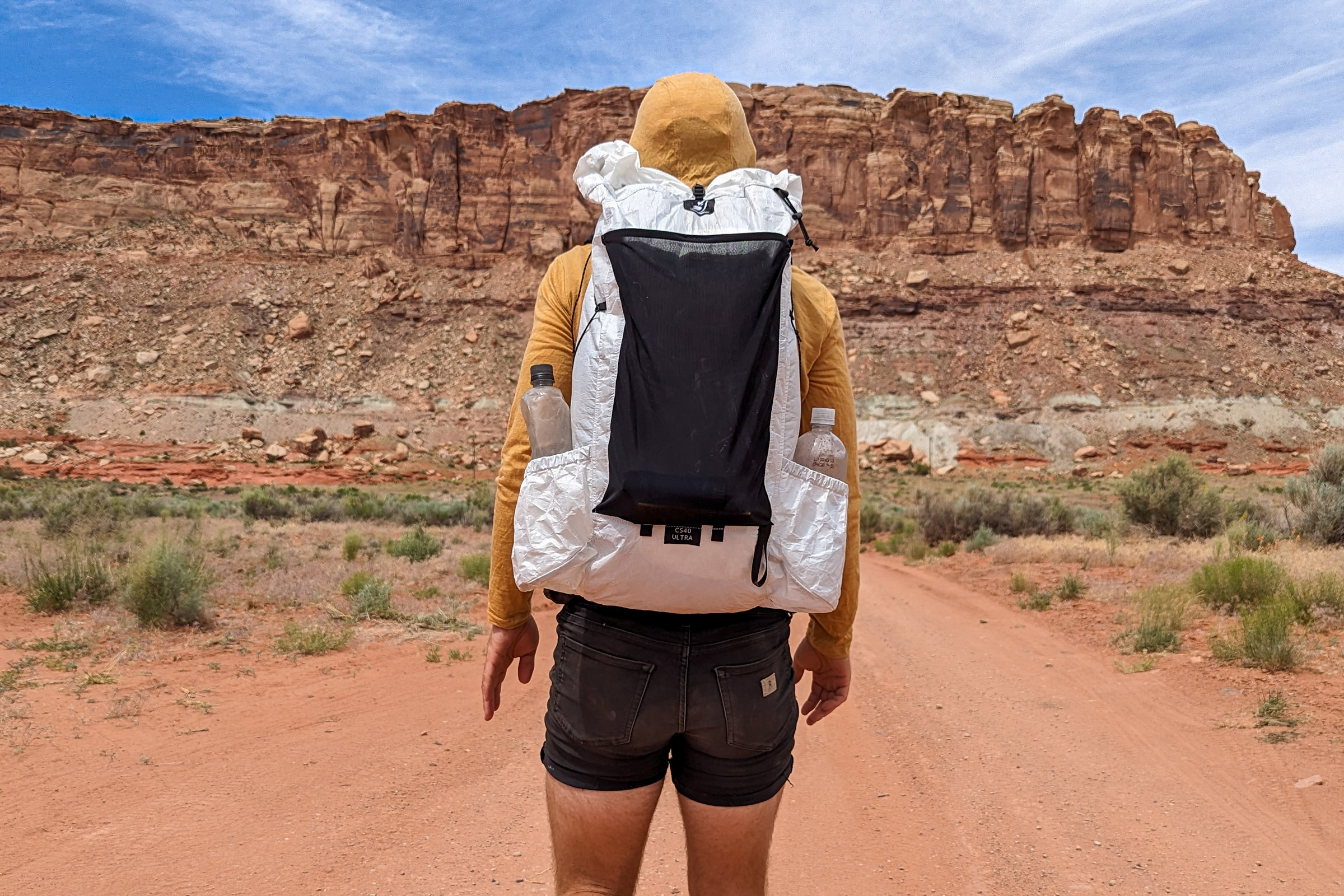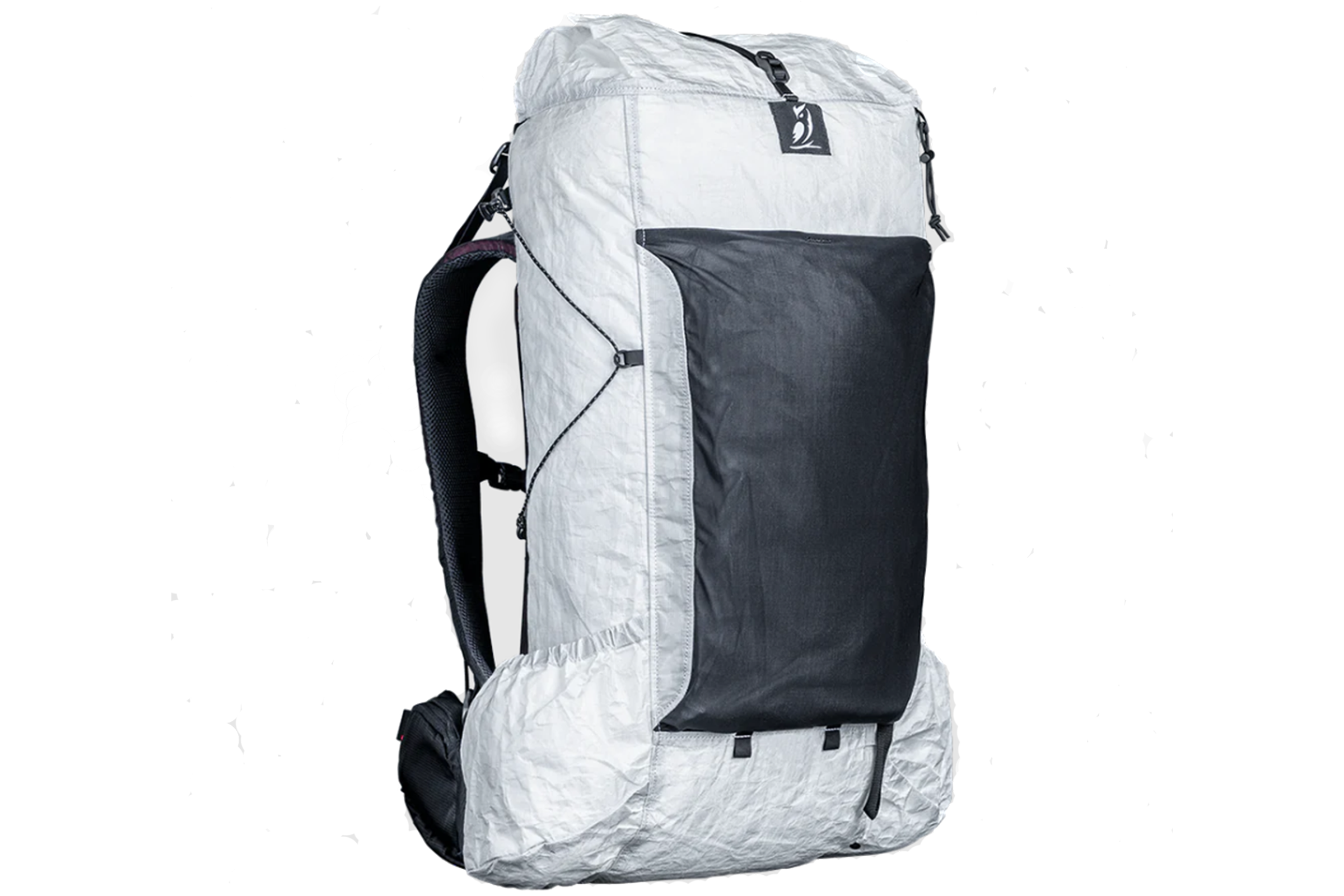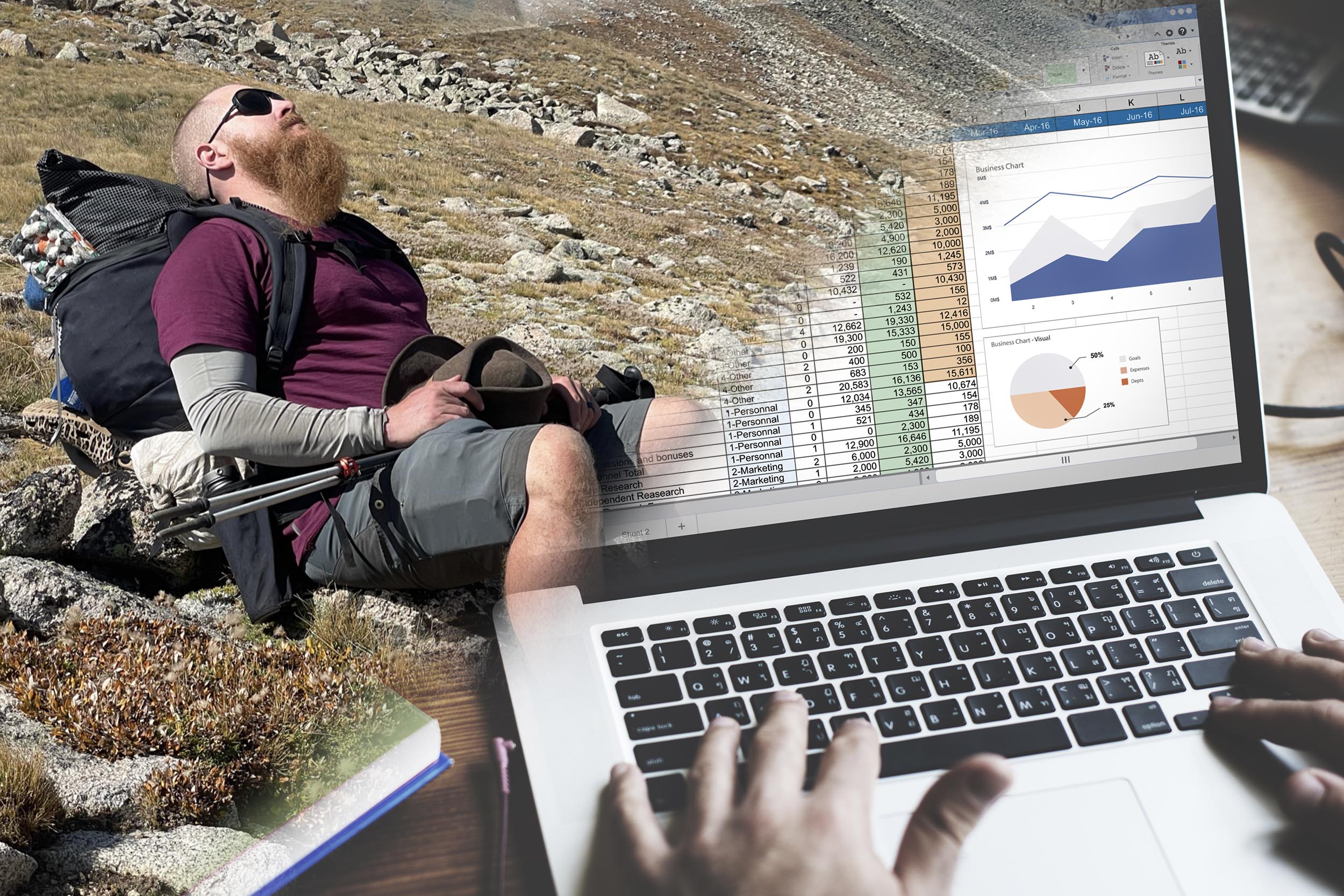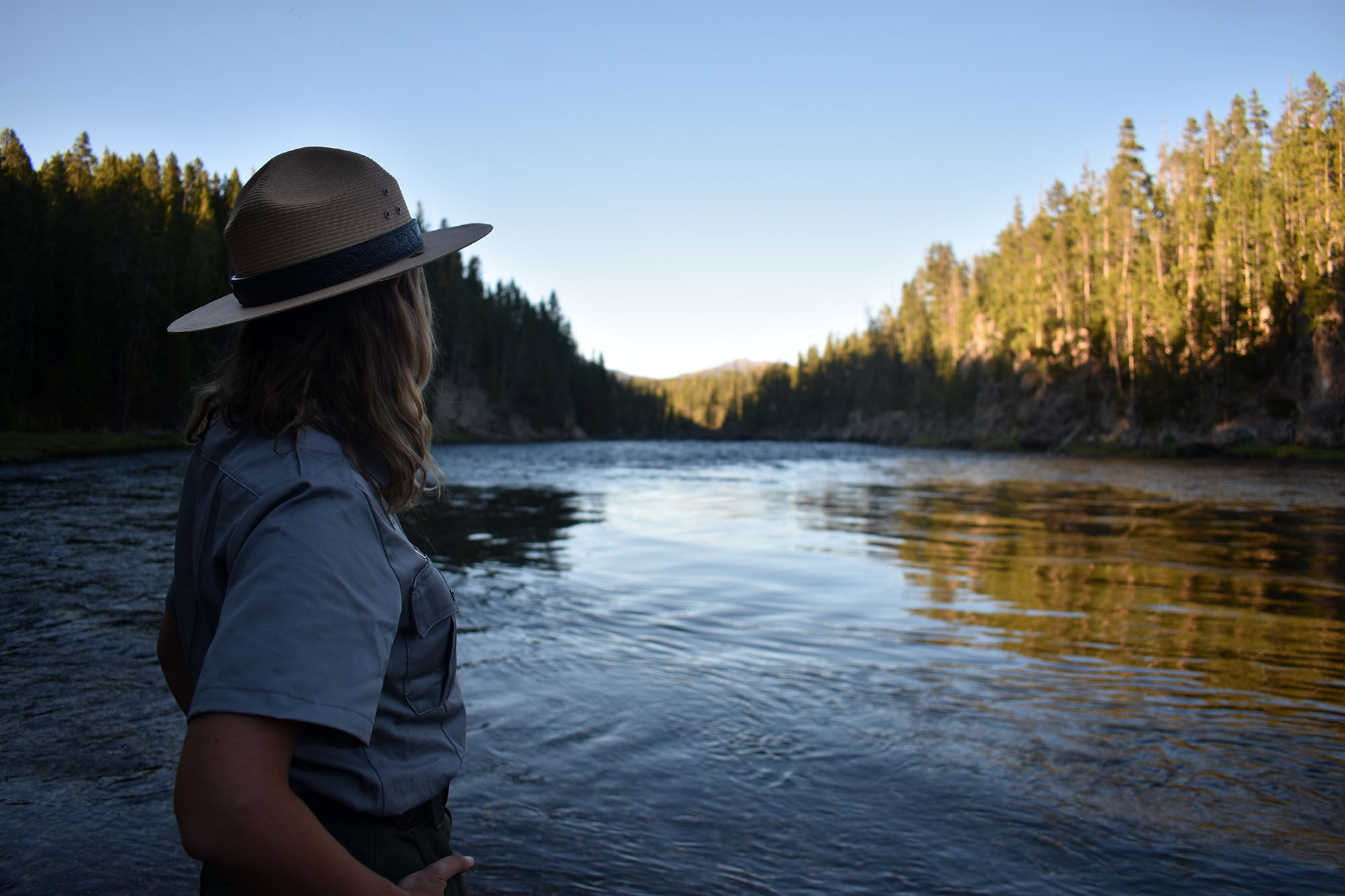I’ve thru-hiked many of the most popular backpacking routes in the American West: the Continental Divide Trail, Pacific Crest Trail, Grand Enchantment Trail, and the Colorado Trail multiple times, to name a few. I only backpack with ultralight backpacking gear.
Lighter gear is more comfortable and lets you go farther, comfortably. I’ve used tons of different versions of the most important piece of ultralight gear: the backpack. I’ve used a different backpack for every thru-hike, and I’ve tested most of the popular ultralight backpacks for my day job as a gear tester.
None of the packs I’ve used have impressed me as much as the new Outdoor Vitals CS40 Ultra Backpack. This pack carries loads as well as packs that weigh twice as much. And it blows the most popular ultralight backpacking packs out of the water in weight-carrying capacity.
In short: The CS40 Ultra Backpack doesn’t sacrifice weight savings for load carrying or durability. At a mere 27 ounces, it weighs 5 ounces less than the Hyperlite Mountain Gear 2400 Southwest. And the Ultra 200 fabric used on the CS40 is significantly more durable than Dyneema Composite Fabric (DCF), as used on the HMG 2400 Southwest. Outdoor Vitals nailed it with their newest backpack. Don’t sleep on this one.
Looking for a new ultralight pack? Check out how the CS40 Ultra compares to the rest of the market in GearJunkie’s Best Ultralight Backpack Buyer’s Guide.
-
Weight
7.0
-
Comfort
7.0
-
Volume & Organization
7.0
-
Durability
7.0
- Weight: 1 lbs., 11 oz.
- Volume: 53 L (41L main, side pockets 2L each, stretch pocket 6L, hip belt pockets 1L each)
- Material: Challenge UltraWeave 200
- Outside Storage: Two zippered hip belt pockets, two side pockets, front mesh shove-it pocket
- Hip Belt: Padded, non-removable
- Frame Type: Two carbon fiber stays
- Sizing: Small, Medium, Large
- BV500 Bear Can Fit: Vertically
Pros
- Comfortable
- Lightweight
- Perforated foam back panel and hip belt
Cons
- Expensive
- Only comes in 40L size
Outdoor Vitals CS40 Ultra Backpack: Review

Everything You’d Expect From an Ultralight Pack: Outdoor Vitals CS40 Ultra Backpack
The CS40 Ultra Backpack has every common feature in other ultralight backpacking packs, plus more:
- Carbon fiber frame
- Full-suspension system: frame, load lifters, padded back panel, and hip belt
- 40L rolltop main compartment
- Large stretch mesh outside pocket
- Accessible side water bottle pockets that can each hold 2 L of water
- Zippered hip belt pockets
- Cutouts for weight and breathability on straps and back panel
- 3D mesh backing on shoulder straps and hip belt for breathability
- Removable hydration bladder sleeve
All this is included in a 27-ounce package.

What Other Ultralight Packs Lack
Most ultralight backpacking backpacks have a frame and hip belt, but they don’t work to transfer the pack’s load onto your hips. Many ultralight packs sacrifice load carrying for weight savings.
It’s common for ultralight pack frames to only extend to the shoulder straps, leaving a gap between the straps and the load lifters. Since those load lifters aren’t connected to the frame, they don’t work as well as they could to properly distribute weight across your back.
Some ultralight backpacking packs don’t even have load lifters (I’m looking at you, Hyperlite). This is maybe the best pragmatic choice, though, since load lifters don’t do much if the frame doesn’t extend far enough up the back panel.
The CS40 Ultra has an extra 3 inches of frame material that extend above the shoulder straps to the load lifters. Those extra inches make the suspension system better.

A Full Carbon Frame That Carries Weight Better
The CS40 carries loads like a traditional full-framed backpacking pack while still being one of the lightest backpacks available. The key to this pack’s incredible load-carrying abilities is a pair of carbon fiber frame struts that extend the full length of the back panel, from the hip belt to the load lifters.
When you loosen the load lifters, you can feel the weight of the pack load onto the hips. When you tighten them, you can feel the load move onto your shoulders, too. The load lifters actually work because the frame extends for the entire length of the back panel.
Though Outdoor Vitals used carbon fiber to save weight on the frame, it has another benefit. Carbon fiber is an extremely stiff material, much stiffer than aluminum. This means the frame doesn’t flex under loads like some ultralight packs, creating a more stable ride.
Even though the frame has a gentle curve for precise load transfer, the carbon fiber doesn’t bend as you move. I can’t say the same about other backpacks.

Ultralight Construction Stronger Than DCF
Compared to Dyneema Composite Fabric (DCF, formerly Cuben Fiber), the Ultra 200 fabric used on the CS40 pack body is stronger.
Ultra 200 is more abrasion-resistant and has a higher tear strength than the 50-denier DCF used on the iconic white Hyperlite 2400 Southwest. And, Ultra 200 fabric is only a half-ounce heavier per yard than the 50-denier DCF that Hyperlite uses.
DCF has an extremely high strength-to-weight ratio, but it lacks the abrasion resistance a backpack should have. All the DCF gear I’ve used develops tiny pinholes in high-wear areas after a few months of heavy use.
I haven’t seen the same issue with the Ultra 200 material used in the CS40, and don’t expect to anytime soon. Ultra 200 is quickly becoming the most popular material for ultralight backpacking packs — and for good reason. Even though it’s slightly heavier than DCF, this material balances weight and durability much better.
The Evolution of Ultralight: CS40 Final Word

I don’t mean to rag on Hyperlite. Those packs are popular for a reason: they’re lightweight, waterproof, readily available, and revolutionary in the ultralight backpacking world. But other pack makers are catching up.
Outdoor Vitals is stepping into the big leagues with its newest backpack. The CS40 Ultra Backpack shows great progress in ultralight backpack technology. The full carbon frame, full suspension, durable Ultra 200 fabric, and the fact that this pack weighs in at just 27 ounces make the CS40 a serious contender in the ultralight backpacking space — one that could stand up to challenge some of the long-time ultralight fan favorites from other brands.









